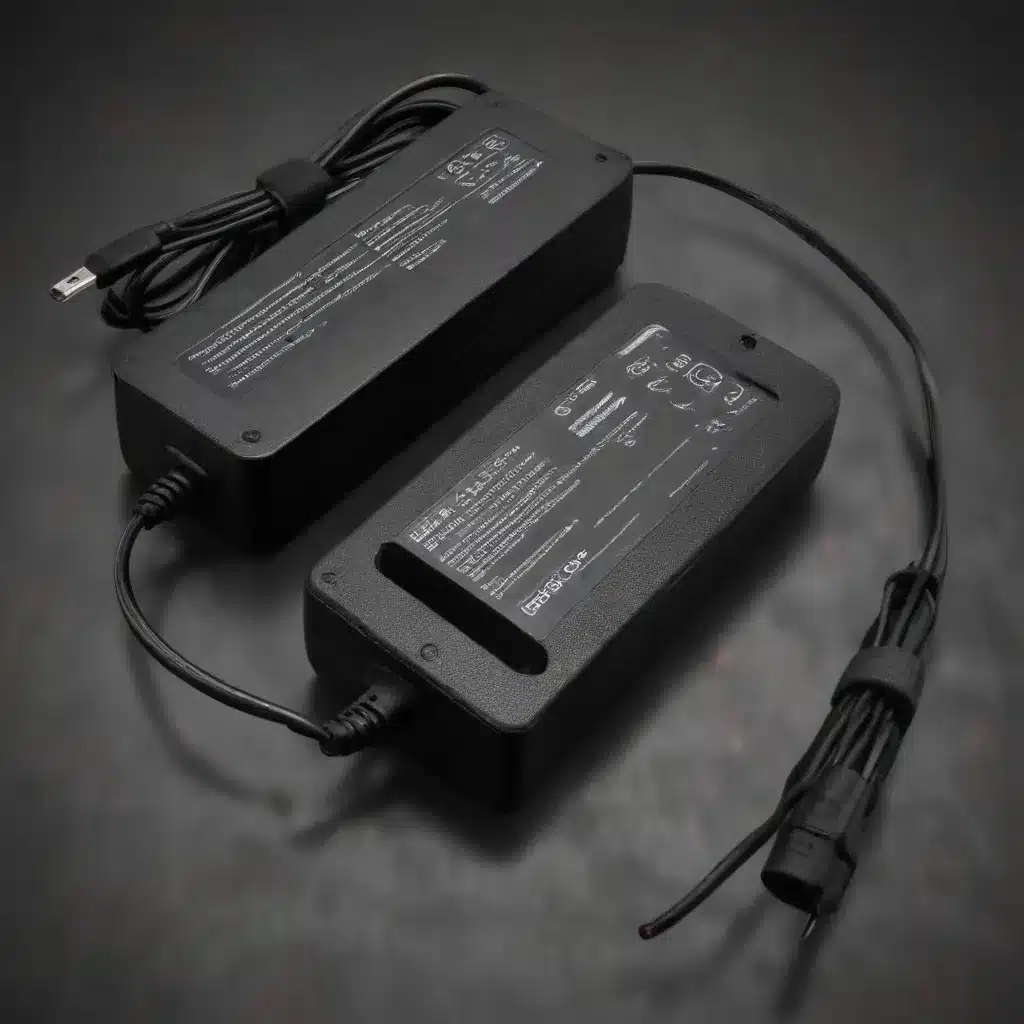
Understanding the Importance of Proper Laptop Charging
As a seasoned IT professional, I’ve witnessed firsthand the importance of maintaining a laptop’s power supply for optimal performance and longevity. The power adapter, often referred to as the “laptop charger,” plays a crucial role in ensuring your device stays powered and ready for use, whether you’re at home, in the office, or on the go.
In today’s fast-paced digital landscape, our laptops have become essential tools for productivity, communication, and entertainment. Ensuring that your laptop’s power adapter is functioning correctly can make all the difference in your overall user experience and the long-term health of your device.
Choosing the Right Replacement Power Adapter
When it comes to laptop power adapter replacement, it’s essential to select a high-quality, compatible option that meets the specific requirements of your device. While the market offers a wide range of third-party adapters, it’s crucial to exercise caution and do your research to ensure compatibility and reliability.
One of the key factors to consider when selecting a replacement power adapter is the wattage output. Each laptop model has a recommended wattage range, and using an adapter that falls outside of this range can potentially cause damage to your device’s battery or internal components. It’s best to consult your laptop’s manufacturer or the device’s specifications to determine the appropriate wattage requirement.
Additionally, it’s important to ensure that the replacement adapter features the correct connector type, such as MagSafe, USB-C, or the traditional barrel connector. Choosing the wrong connector can prevent the adapter from properly interfacing with your laptop, potentially leading to charging issues or, in some cases, compatibility problems.
Maintaining Optimal Battery Health
Alongside selecting the right power adapter, understanding and implementing proper battery charging practices can significantly contribute to the long-term health and performance of your laptop’s battery.
One common misconception is that keeping your laptop plugged in at all times is detrimental to the battery’s lifespan. However, modern laptops, particularly those running macOS or Windows 10, have advanced power management systems that intelligently regulate the charging process to mitigate the risk of overcharging.
In fact, many laptop manufacturers now recommend keeping your device plugged in as much as possible, as this can help preserve the battery’s overall capacity and reduce the number of charge cycles. Allowing the battery to regularly discharge to low levels and then recharge can actually be more harmful in the long run.
That being said, it’s still essential to avoid leaving your laptop continuously plugged in once it reaches 100% charge. Most operating systems will automatically stop charging the battery once it reaches full capacity, but it’s a good practice to unplug the device once it’s fully charged to prevent any potential issues.
Addressing Charging Issues and Troubleshooting
In the event that you encounter charging-related problems with your laptop, it’s important to act promptly to diagnose and resolve the issue. Common charging-related problems can include:
- Slow or intermittent charging: This could be due to a faulty power adapter, a worn-out cable, or a problem with the laptop’s charging port.
- Battery not charging: This could be caused by a malfunctioning power adapter, a compatibility issue, or a problem with the laptop’s internal charging circuitry.
- Overheating during charging: This could indicate a problem with the power adapter, the laptop’s cooling system, or a compatibility issue.
If you experience any of these issues, it’s recommended to first try using the original power adapter provided by the laptop’s manufacturer. If the problem persists, you may need to consider replacing the power adapter or seeking professional assistance.
When purchasing a replacement power adapter, it’s crucial to ensure that it is a genuine, high-quality product from a reputable brand or authorized retailer. Cheap, counterfeit adapters may not provide the necessary power output or safety features, potentially leading to further damage to your laptop or even posing a fire hazard.
Traveling with Your Laptop: Power Adapter Considerations
For those who frequently travel with their laptops, selecting the right power adapter can make all the difference in your productivity and convenience.
Look for a universal power adapter that can accommodate multiple voltage ranges and plug types, allowing you to charge your device in different countries without the need for additional adapters or converters. These adapters often feature interchangeable plug tips, making them a versatile choice for the modern digital nomad.
Additionally, consider investing in a compact, multi-port power adapter that can simultaneously charge your laptop and other mobile devices, such as your smartphone or tablet. This can help you streamline your charging setup and reduce the number of adapters you need to carry.
Conclusion: Empowering Your Laptop’s Longevity
In the fast-paced world of technology, maintaining the reliability and longevity of your laptop is crucial. By understanding the importance of proper power adapter selection, battery charging practices, and troubleshooting techniques, you can ensure your device stays powered and ready to tackle your daily tasks, whether you’re at home, in the office, or on the go.
Remember, your laptop is a valuable investment, and taking the time to properly care for its power supply can extend its lifespan and keep you productive and connected. By following the guidance outlined in this article, you can confidently navigate the world of laptop power adapter replacement and enjoy a seamless, reliable charging experience.
For more in-depth technology tips, computer repair insights, and IT solutions, be sure to visit https://itfix.org.uk/, your go-to resource for all things tech.












